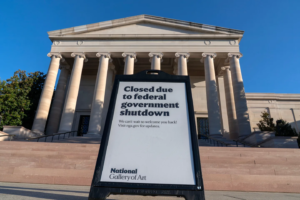When Sarah McLachlan stepped onto the stage at the premiere of her Hulu documentary, “Lilith Fair: Building A Mystery,” the audience expected a nostalgic journey back to the iconic 90s festival. Instead, they witnessed a powerful, modern-day protest. To cheers from the crowd, Mnced she would not perform, declaring she was taking a stand against the “muzzling of free speech” and the “insidious erosion” of women’s and LGBTQ+ rights.
While she never uttered the names “Disney,” “ABC,” or “Jimmy Kimmel,” the context was unmistakable. The event was hosted by Disney-owned Hulu and ABC News Studios, the same conglomerate that had just suspended “Jimmy Kimmel Live!” amid a political firestorm. McLachlan’s decision transforms a celebratory night into a critical case study in the complex dance between art, corporate ownership, and principled dissent.
The Protest Within the Machine: A Calculated Statement
McLachlan’s protest was notable not for its bluntness, but for its sophistication. By boycotting her own performance at the event rather than boycotting the event entirely, she executed a nuanced form of dissent. She honored the work of the filmmakers and the fans who showed up, while simultaneously leveraging the platform’s spotlight to make a statement against the platform’s parent company.
This is a calculated risk that many artists face in an era of media consolidation. As a cultural historian, I see this as a direct evolution of the Lilith Fair ethos. In the late 90s, the festival was a radical act of carving out a commercial space for women’s voices in a male-dominated industry. Today, the protest is about challenging the very corporate structures that now often fund and distribute that art. The message is clear: celebration does not mean complacency.
Connecting the Dots: The Jimmy Kimmel Context

To understand the weight of McLachlan’s statement, we must examine the event that precipitated it. The suspension of “Jimmy Kimmel Live!” represents a flashpoint in the ongoing national debate over media censorship and corporate capitulation to political pressure. By pulling a flagship talk show, Disney sent a chilling message about the limits of speech it is willing to tolerate on its airwaves.
McLachlan’s protest, therefore, is not an abstract defense of free speech. It is a specific rebuke of a specific action by her corporate partner. It raises a critical question for every creator: How do you navigate a partnership with an entity whose actions you fundamentally oppose? Her answer was to use the partnership as the stage for her protest, ensuring her message would be heard precisely where it was most relevant.
The Lilith Fair Legacy: Empowerment Then and Now
This moment is deeply rooted in the history McLachlan herself helped write. Lilith Fair was more than a concert tour; it was a declaration of independence and community. It proved that women-centric art was not a niche market but a powerful cultural and economic force.
Decades later, the threats have evolved. The “advances we’ve made,” as McLachlan noted, are now facing a coordinated erosion. Her call for a “softening to let in the possibility of a better way” and her view of “music as a bridge to our shared humanity” are not just platitudes. They are the core principles of Lilith Fair, re-armed for a new political battle. It’s a move from building a commercial alternative to directly confronting the mainstream.
The Uncomfortable Reality of Corporate Activism
McLachlan’s stand forces us to confront an uncomfortable reality of modern media. Corporations like Disney often brand themselves as allies of progressive causes—until those values conflict with bottom-line pressures. The premiere of a documentary about female empowerment, hosted by a company that had just muzzled a popular host over controversial commentary, created a stark contradiction.
This incident reveals the limits of what we might call “convenient activism.” True principle is tested when it becomes inconvenient or costly. For artists like McLachlan, Jewel, and Olivia Rodrigo (who was also scheduled to perform), the choice was to either participate in a potentially hypocritical celebration or to disrupt it in the name of consistency. They chose disruption.
Analysis: What McLachlan’s Protest Teaches Us
Sarah McLachlan’s decision is more than a news headline; it is a masterclass in leveraging influence. It demonstrates that:
- Platforms Can Be Hijacked for Principle: Even within a corporate structure, moments of live, unscripted dissent can break through.
- Symbolism is Powerful: Canceling a performance at a documentary premiere is a layered, symbolic act that speaks volumes beyond a press release.
- The Artist-Audience Bond is Key: The cheers from the crowd confirmed that her audience understood and supported the move, strengthening the trust that has been built over decades.
In the end, McLachlan didn’t just refuse to sing. She used silence as her most powerful note, turning a night meant to honor the past into a defiant statement about the present. It’s a reminder that the fight for a voice, which Lilith Fair championed in the 90s, is far from over.




